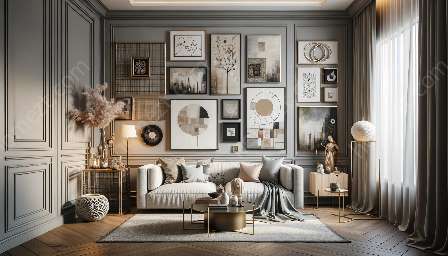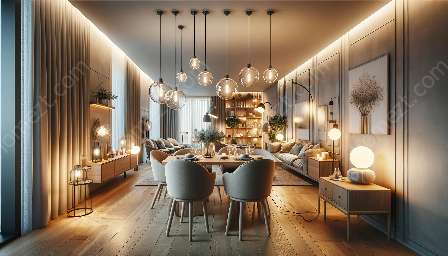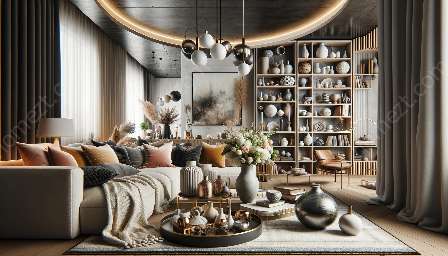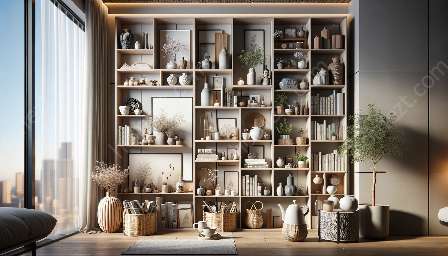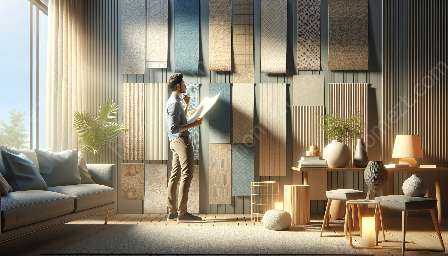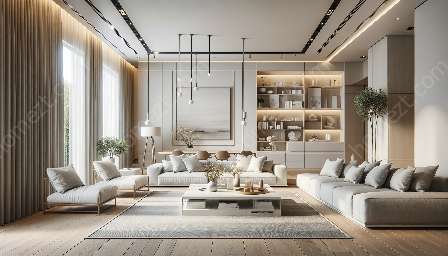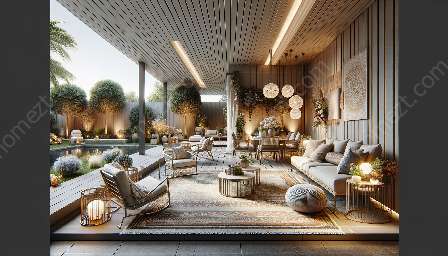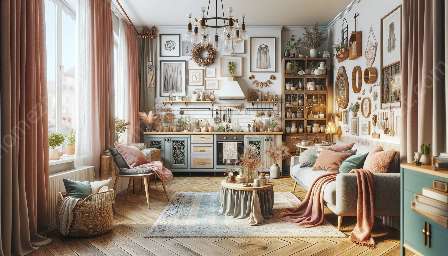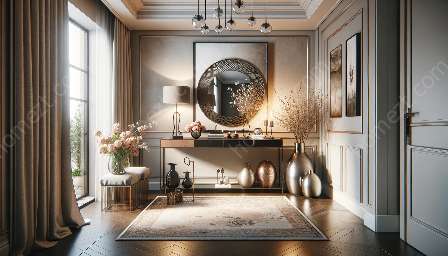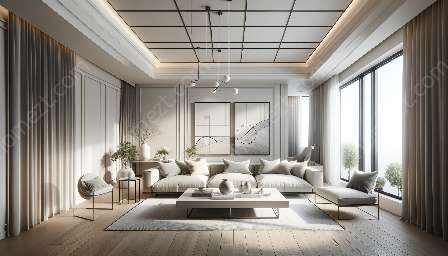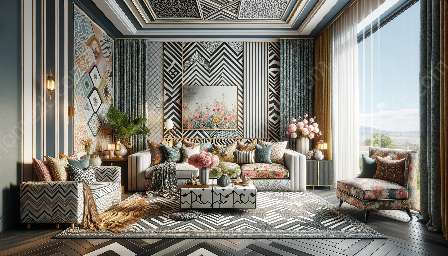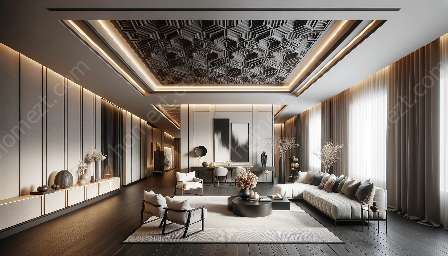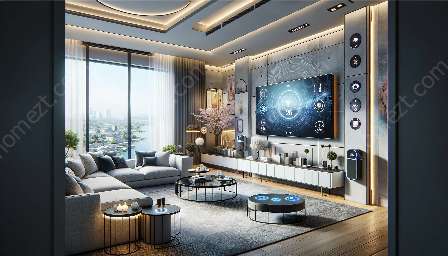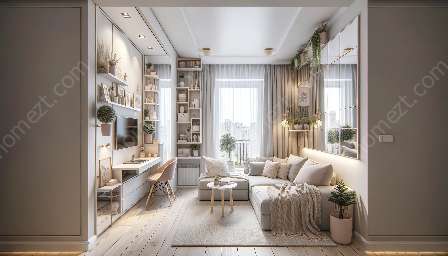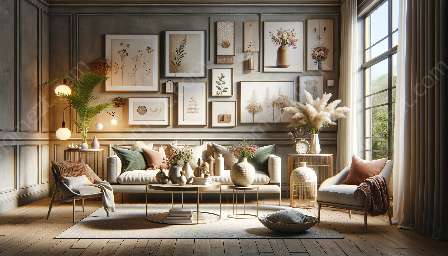Feng shui is an ancient Chinese practice that focuses on harmonizing individuals with their surrounding environment. It is rooted in the concept of qi, or life force energy, and aims to create balanced and harmonious spaces that promote well-being, abundance, and positive energy flow. When applied to small space design, feng shui principles can help maximize the use of space, create a sense of openness and flow, and enhance the overall aesthetic appeal of the space.
Principles of Feng Shui
There are several key principles of feng shui that are relevant to small space design:
- Clutter-Free Environment: One of the fundamental principles of feng shui is to keep the space free from clutter. Clutter can block the flow of qi and create stagnant energy. In small spaces, it's even more crucial to maintain a clutter-free environment to allow for smooth energy flow and an uncluttered, spacious feel.
- Balance and Harmony: Feng shui emphasizes the importance of balance and harmony in all aspects of design. In small spaces, achieving balance is essential to create a sense of equilibrium and tranquility. This can be accomplished through the careful placement of furniture, decor, and color schemes to ensure a harmonious visual and energetic balance in the space.
- Natural Light and Ventilation: Maximizing natural light and ventilation is a key aspect of feng shui. In small spaces, incorporating natural light and fresh air can make the area feel more expansive and uplifting, enhancing the overall energy of the space.
- Energy Flow: Feng shui places great emphasis on the flow of energy, or qi, within a space. In small space design, it's important to ensure that the energy can flow freely and smoothly throughout the area. This may involve arranging furniture to allow for unobstructed pathways and ensuring that energy can circulate optimally.
Applying Feng Shui to Small Space Design
When applying feng shui principles to small space design, there are several strategies to consider:
- Utilize Multifunctional Furniture: In small spaces, multifunctional furniture can help optimize the use of space and create a more versatile environment. Look for pieces that serve dual purposes, such as a sofa that converts into a bed, or a coffee table with hidden storage compartments.
- Create Open Pathways: To promote the flow of energy in a small space, create open pathways that allow for easy movement throughout the area. Avoid cluttering walkways with unnecessary furniture or decor, and ensure that there is a clear and unobstructed flow from one area to another.
- Maximize Vertical Space: In small spaces, making use of vertical space can significantly increase the available surface area. Consider installing wall-mounted shelves, utilizing tall bookcases, or incorporating hanging plants to draw the eye upward and create the illusion of a larger, more open space.
- Embrace Soft, Rounded Shapes: In feng shui, soft, rounded shapes are associated with a gentle, harmonious energy. In small space design, incorporating rounded furniture and decor items can create a more flowing, organic feel and soften the sharp edges often found in compact spaces.
Decorating with Feng Shui in Mind
When decorating small spaces with feng shui principles in mind, consider the following tips:
- Choose Calming Colors: Color plays a significant role in feng shui, as it can influence the energy and mood of a space. Opt for calming, soothing colors such as soft blues, gentle greens, and warm neutrals to create a serene and balanced atmosphere in small spaces.
- Incorporate Nature-Inspired Elements: Bringing elements of nature into small spaces can connect the indoor environment with the natural world, enhancing the flow of positive energy. Consider incorporating plants, natural fibers, and organic textures to infuse the space with a sense of vitality and tranquility.
- Use Mirrors Strategically: Mirrors are a powerful tool in feng shui, as they can visually expand a space and reflect light to brighten dark areas. In small space design, strategically placing mirrors can help create the illusion of spaciousness and amplify the flow of energy.
- Create a Tranquil Resting Area: In small spaces, it's essential to carve out a peaceful, tranquil resting area. Whether it's a cozy reading nook, a meditation corner, or a relaxing seating arrangement, dedicating a space for relaxation and rejuvenation contributes to the overall harmony of the environment.
By applying the principles of feng shui to small space design, individuals can optimize their living or working environments to promote a sense of balance, harmony, and positive energy flow. From decluttering and maximizing natural light to incorporating multifunctional furniture and embracing calming decor elements, feng shui offers valuable insights for creating harmonious and inviting small spaces.

